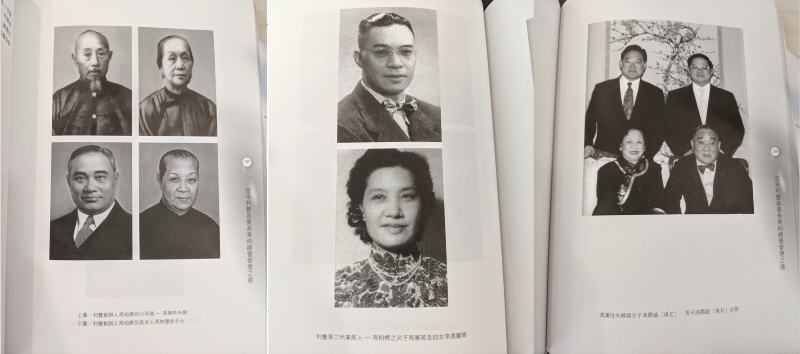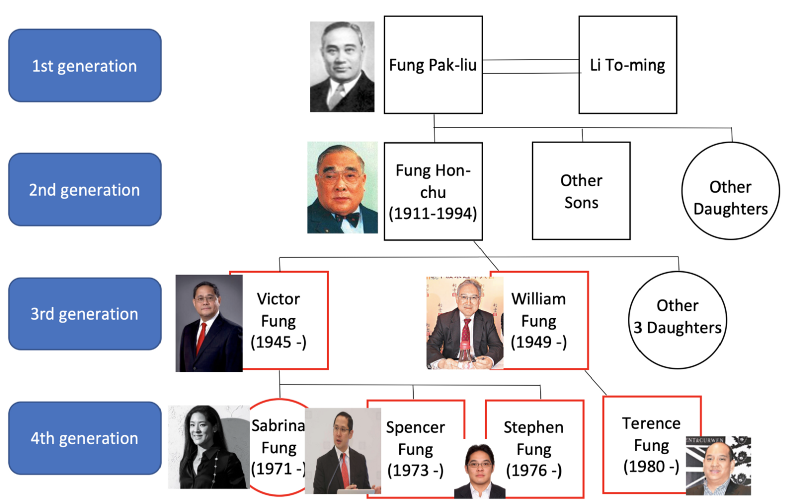Case Study: Li & Fung Family Business

In this article, we will discuss the lessons that can be learned from the Li & Fung family business. The key to its longevity—over a thousand years—is its ability to continually reinvent itself for survival.

Not many Chinese family businesses have been successful for such an extended period. Founded in 1906 in Guangzhou, Li & Fung was the first Chinese trader export company. Today, it has expanded into 40 different countries and employs over 20,000 people.

The succession of a family business poses significant challenges. An old Chinese saying warns, “Wealth does not last for more than three generations.” Even in the United States, a study by Brooklyn College shows that 70% of family businesses do not transition from the first to the second generation, and 88% do not pass on to the third generation. Only 3% of family businesses make it to the fourth generation. Yet, the Li & Fung family business is already in its fourth generation. What sets it apart? What are the factors that contribute to its success?

The answer lies in the global perspective and open-mindedness of both the founders and successors. This approach allowed the family business to capitalize on significant trends and shifts in the macro-economy. For example, when China opened up trade at the end of the Qing Dynasty, Li & Fung positioned itself as the first Chinese middleman, capitalizing on their understanding of both Western and Chinese markets. Through interactions with English-speaking foreigners, they expanded their horizons beyond those of other traders in mainland China. Their ability to adapt allowed them to grow along with Hong Kong’s rise as a manufacturing and clothing export hub. They also profited from China’s economic reforms, with their Chinese business contributing to more than 51% of their total sourcing business.

However, the family business is facing challenges in its fourth generation, particularly due to its failure to anticipate digital trends. This became evident when Li & Fung declined three opportunities to invest in Alibaba, sticking instead to their traditional business model. As a result, they have struggled to adapt to the e-commerce landscape. This has led to declining profits and revenues as global brands change the way they manage their supply chains, often bypassing middlemen like Li & Fung. In 2017, the company was removed from the Hang Seng Constituent Stocks, signaling the scale of the challenges it faces.

Despite facing numerous challenges throughout its history, the family business has survived by constantly reinventing itself and passing this ethos down to succeeding generations. For instance, during the Korean War, the United States imposed an embargo on China, affecting the Hong Kong re-export business. The family then pivoted from focusing on re-exports to exporting local Hong Kong goods.
The third generation, educated at Harvard Business School, brought new modern management theories into the traditional family business. This enabled the company to go public, thanks to the separation of ownership from business management, and the establishment of good governance practices.

Li & Fung transitioned from a “One Boss/Employees” system to a proper management hierarchy, replacing family members with professional managers holding university degrees. Despite facing historical challenges like the return of Hong Kong to China in 1997, the business adapted by changing its strategies in alignment with macro-economic trends.
Spencer Fung, representing the fourth generation, has also upheld these crucial family values. Educated in the United States with an MBA, he is entrepreneurial and has co-founded an online marketing platform in Silicon Valley. Despite the trade war between the United States and China, the family business has diversified out of China into Vietnam and other Asia-Pacific countries.
The next significant trend focuses on speed, innovation, and digitalization. The fourth generation has strategically invested in new technologies to reduce supply chain lead times and enable rapid prototyping with 3D virtual design. They also use advanced analytics to improve various business metrics.

In conclusion, the Li & Fung family business has successfully merged Western modernization in management and technology with Eastern wisdom in relationships and family values. They continually implement revolutionary ideas for change and constant improvement. They maintain a Western approach to system management while incorporating an Eastern, more human touch. While efficiency is paramount in the United States, the Li & Fung family recognizes the importance of emotional intelligence, which has been critical for the business’s longevity and ability to adapt to challenges faced by the fourth generation.